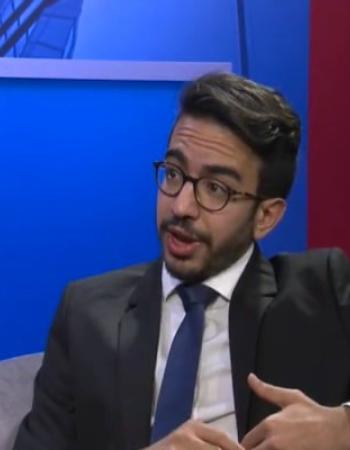How a LinkedIn Conversation Started a Global Public Health Debate

“What is your top (not disease) public health challenges of the future?”
That’s all what Dr. Glenn Laverack, an international leader in public health and empowerment and a Freelance public health advisor had to post on the LinkedIn group: Global Public Health to start a global conversation highlighting most of the challenges of public health in the future and giving us an example on how using social media platforms can amplify public health messages and start a dialogue on key issues pertaining to public health. On his LinkedIn page, Dr. Laverack describes himself as being committed to working with others to find solutions to the more practical application of public health and health promotion strategies and in the evidence for the link between empowerment and reducing social injustice and health inequalities.
Physicians, nurses, epidemiologists, public health officers, master’s and doctoral students in public health, healthcare workers and policy makers from all over the world engaged in the conversation addressing various public health challenges. The number of responses was more than 200 over a period of a month -up to the time this blog was written-.
The first response to the question came from Rudisang Ramathodi, a clinical psychologist and Head of Counseling at a staffing solutions firm in South Africa. She addressed the issue of inequality and access to healthcare saying:
“Religion, culture, politics and inequality range between the rich and the poor. The rich being able to get better service because they can afford private hospitals and the poor struggling because they depend on government hospitals where service delivery is very poor...”
Carly Edwards, an International Development Professional and Country Director of Project Peanut Butter in Ghana, a program aimed to treat severely malnourished kids all over the world added:
“ .. when talking about rich vs. poor access to health care, I would add attitudes of health care providers (particularly when working with "poor" patients) and possibly just patients perceptions of those attitudes; seeking medical care too late; and the need to merge acceptance of medical care with local beliefs (curses, prayer camps, etc.). Many of these are definitely country/region and culture specific”.
On inequality and access to healthcare, many comments also focused on bridging the economic gap between the rich and poor and among different races and ethnicities to establish equality.
The comments then proceeded to address challenges some of which were local and national such as water supply, hygiene, safety, food security, aging population, obesity, gender based violence, rape, HIV, trauma in road traffic accidents and assessing basic health needs in developing countries. The discussion trend then started to shift to address broader cross-regional issues at a population level directed by governments in addition to bridging the gap between theory and practice. An interesting point posted by Esther Nyamusi, Technical Officer HIV Program at Kenya Medical Supplies Agency was:
" ..Another concern is there are so many academicians in the health sectors who produce excellent PH research work but based on the ever recurring PH concerns which have been widely researched, I am not so sure if recommendations of these researches are implemented at both national and community level. Research though not wrong is used as a tool for recognition rather than to advice policy in the public health field, I wish the latter is given more importance"
Tessa Oraro, Health Policy Consultant at the International Finance Corporation added:
"Glenn, I think that the onus is on individual governments to develop strong health strategies to drive resource allocation. Based on sound health strategies and effective lobbying of donor governments, developing country governments will be in a better position to redirect resources as required in order to fulfill their medium- to long-term health goals.
I also feel that the research community has a particularly important role to play in providing supporting evidence to show the need for balancing resources between vertical and horizontal programmes."
Farouk Umaru a PhD Public Health student posted a comment that most of the participants agreed with:
"..I think the major challenge ahead of public health practitioners is public health practice itself. The traditional role of public health of assurance, policy and prevention outlived its usefulness. For example at what stage is prevention linked to assurance? How do policies reflects assurance and prevention functions? We all know that public health practitioners depend on collaborative approaches and interventions to achieve targeted goal, and yet minimum emphasis is given collaboration as a major function of public health..."
He also added saying:
"….Over the years, we have seen parallels in research and community practices in the sense that academic output does not necessarily translate into community well being. We have moved from academia-identification-of-community-problem to community-participatory-research but we are still far from community-initiated research practices. By this I mean community members to identify critical health issues affecting their well being and collaborate with academia, stakeholders and civil society to craft, design, implement, evaluate and monitor appropriate interventions. Bottom-up approach to public health practice should be preferred to vertical approach to public health practices".
Climate change and the direct and indirect impact it had on the environment and populations was a challenge expressed by many participants in the thread. Dr. Laverack responded by expressing his worry that public health "disconnects from issues such as globalization and climate change because these are seen as beyond its control and adaptation if left to the reaction of the consequences at a national or local level,"
The discussion still continues to cover a range of issues and solutions and it gets more interesting every time I receive a notification of a new post on the thread. I have left out a lot of interesting ideas and posts to encourage the reader to check out the thread and engage in the conversation. By integrating social media into health communication and using it as a platform for debate, Dr. Laverack managed to reach out to many people in public health all around the globe encouraging participation and exchange of ideas.
Part of the problem and challenge is that public health is so broad, and a lot of health challenges are under the umbrella of public health. Resources alone cannot solve the challenges faced by public health policy-makers in richer developing countries and in poor countries too. In Saudi Arabia for example, having an excess of resource can make policy formulation and implementation more difficult. What we need is a well thought-out and strategic public health policy and advocacy and the first step to reach this goal is to engage and participate in similar conversations and become more proactive in reaching out to the communities and starting a dialogue. The question posted on the thread which initiated all of this is a question that we sometimes ask ourselves every day, the difference is that someone decided to share this question and see what other people are thinking and add more perspective and value to ideas. I encourage each and everyone reading this to check out this thread on LinkedIn and to share more information that can add a lot of insight to the challenges we face in the future. Finally, I leave you with this post by Jo Walker, DrPH Candidate at Flinders University who described the challenges in the beginning of the thread and basically summarized it as follows:
“The challenges are different depending where you are in the world. At a societal level for western societies the challenge is to broaden their world view from health is the health system , to see and understand that reliance on technological and diagnostic services, prescription pads and health professionals is only one part of health and well being. And It is an illness system. For societies that are are still struggling to have access to potable water, food and other basic necessities of life their daily challenge is to meet these needs, break this poverty cycle, create healthy public policies & systems for long term health that goes beyond the daily struggle. For all societies prevention , determinants of health (environmental and social) and human rights, ecological sustainability and climate change - these are everyone's public health challenges”
This is public health :)
To check out the conversation and Global Public Health group on LinkedIn click on the following link:
http://www.linkedin.com/groups/Global-Public-Health-120372?home=&gid=120372&trk=groups_item_detail-h-logo

